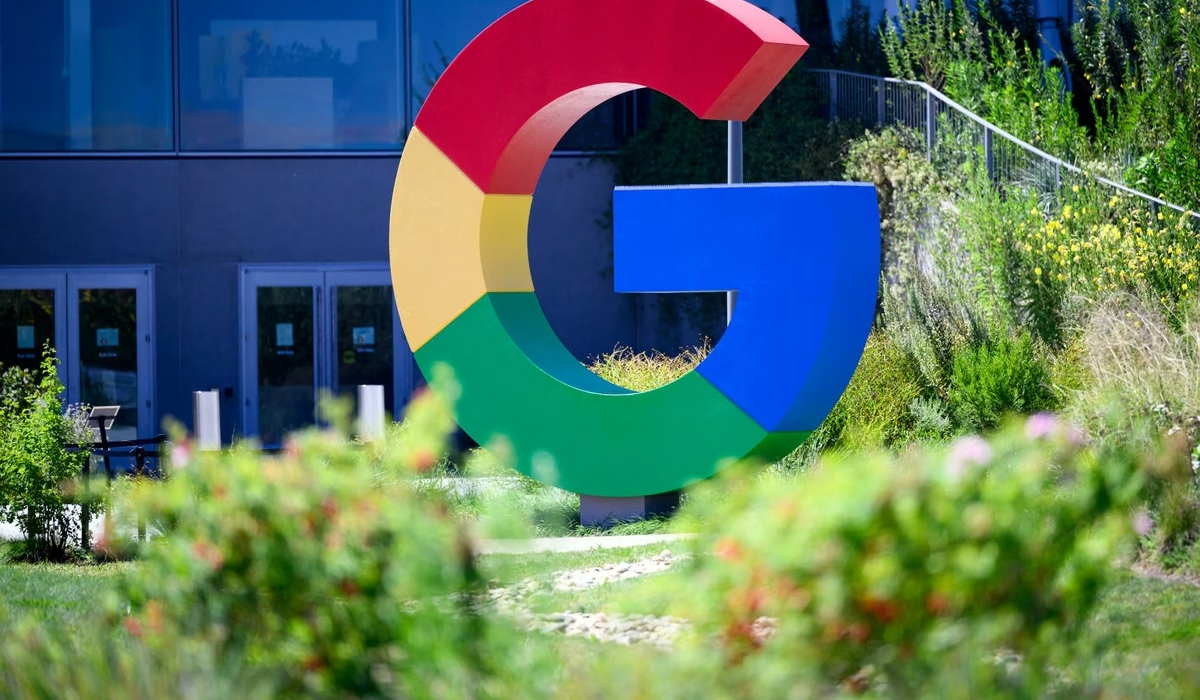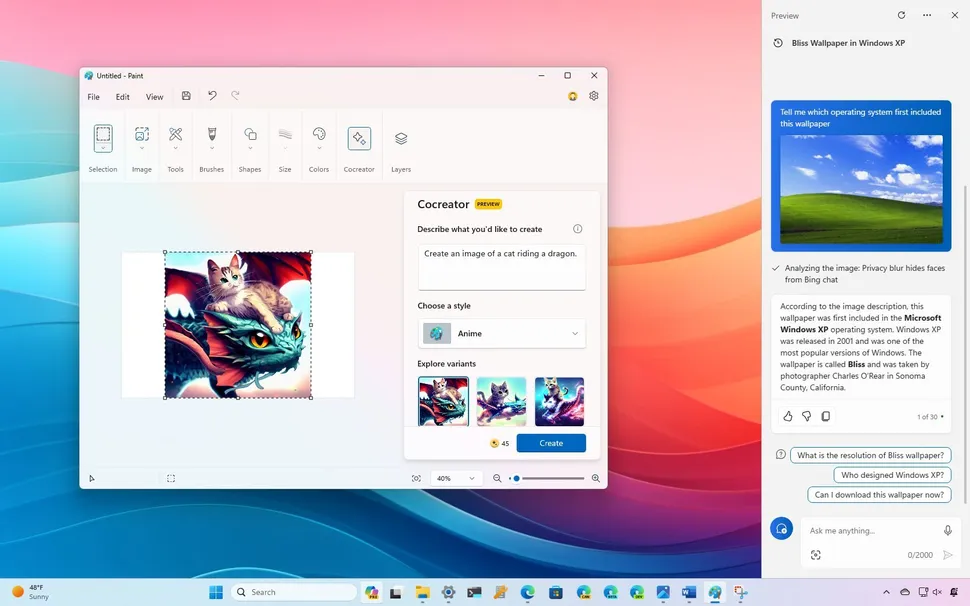Unpacking the Google AI Overviews EU Antitrust Complaint: Why Independent Publishers Sue Google AI and Its Far-Reaching Impact on News Sites

Estimated reading time: 8 minutes
Key Takeaways
- The EU has received a formal Google AI Overviews EU antitrust complaint from independent publishers.
- Independent publishers sue Google AI alleging harmful practices, including unauthorized content use and traffic diversion.
- The complaint centers on potential Google search AI content misuse and abuse of market dominance.
- Publishers face significant financial and editorial threats, impacting the sustainability of news sites.
- The case leverages robust EU digital regulations Google AI must adhere to, like the DMA and DSA.
- Potential outcomes include fines, mandated changes to AI Overviews, and a redefinition of fair compensation for content creators.
Table of contents
- Unpacking the Google AI Overviews EU Antitrust Complaint: Why Independent Publishers Sue Google AI and Its Far-Reaching Impact on News Sites
- Key Takeaways
- 1. Introduction: Unpacking the Google AI Overviews EU Antitrust Complaint
- 2. The Heart of the Complaint: Why Independent Publishers Are Suing Google AI
- 3. The Tangible Impact of Google AI Overviews on News Sites and Publishers
- 4. The Legal Framework: EU Digital Regulations Google AI Must Contend With
- 5. The Broader Implications: What This Complaint Means for the Future of Search and Content
- 6. Conclusion: A Defining Moment for AI, Search, and Digital Publishing
- Frequently Asked Questions
1. Introduction: Unpacking the Google AI Overviews EU Antitrust Complaint
In the rapidly evolving landscape of digital information, a palpable tension has been steadily escalating between dominant tech platforms and the content creators who form the very backbone of their ecosystems. This growing friction has now culminated in significant legal action, setting a precedent that could reshape the future of online publishing and search.

At the heart of this legal maelstrom is Google, currently facing a substantial challenge in the European Union over its recently introduced AI Overviews feature. This has led to a formal and highly scrutinized Google AI Overviews EU antitrust complaint, signaling a new front in the ongoing battle for digital fairness.
The plaintiffs in this pivotal case are a formidable coalition: a group of independent publishers who are suing Google AI on critical antitrust grounds. Their actions underscore deep-seated concerns about the ethical and economic implications of Google’s AI strategy.
These publishers assert that Google’s implementation of AI-generated content summaries is causing profound, undeniable harm to their businesses. This legal challenge raises urgent and pressing questions about potential Google search AI content misuse and the broader, deleterious impact of Google AI Overviews on news sites, threatening their very existence.
In the following sections, this post will meticulously explore the core details and multifaceted ramifications of this pivotal complaint. We will delve into the publishers’ specific grievances, examine the relevant legal frameworks being invoked, and consider the far-reaching potential implications for the future of search and digital publishing worldwide.
“Google is facing a significant legal challenge in the European Union over its new AI Overviews feature. A formal Google AI Overviews EU antitrust complaint has been filed by a coalition of independent publishers. These publishers allege that Google’s implementation of AI-generated content summaries is causing substantial harm to their businesses, raising urgent questions about Google search AI content misuse and the broader impact of Google AI Overviews on news sites. This post explores the core details and ramifications of this pivotal complaint.”
2. The Heart of the Complaint: Why Independent Publishers Are Suing Google AI
To fully grasp the gravity of the situation, it’s essential to understand the specific grievances that have driven a diverse consortium of content creators to sue Google AI. This section dissects the plaintiffs’ arguments and sheds light on the mechanics of Google AI Overviews that are at the center of the dispute.
Detailing the Complainants

- The complaint was officially filed by the Independent Publishers Alliance, a significant collective voice in the digital publishing sphere. This alliance has garnered crucial backing from influential organizations such as the Movement for an Open Web and the dedicated legal advocacy organization, Foxglove. Their combined efforts amplify the concerns of countless smaller entities struggling against monolithic tech control.
- These organizations collectively represent a diverse and vibrant spectrum of digital publishers and news sites, many of whom are smaller, independent outlets. These are not merely niche players; they are vital contributors to the internet’s content richness. We must emphasize their critical reliance on organic web traffic for their continued survival and their significant, often unsung, role in producing original, high-quality, and deeply researched content that informs and educates the public. Their financial stability hinges directly on users finding and clicking through to their sites.
Explaining Google AI Overviews
- Definition and Placement: Google AI Overviews are best understood as AI-generated summaries of information that are displayed with overwhelming prominence at the very top of Google Search results pages. Crucially, these summaries appear above the traditional “blue links” that have long served as the gateway to individual publisher websites. This means that users are presented with a concise, AI-curated summary of the information they seek before they even see, let alone consider clicking on, any direct links to the original sources.
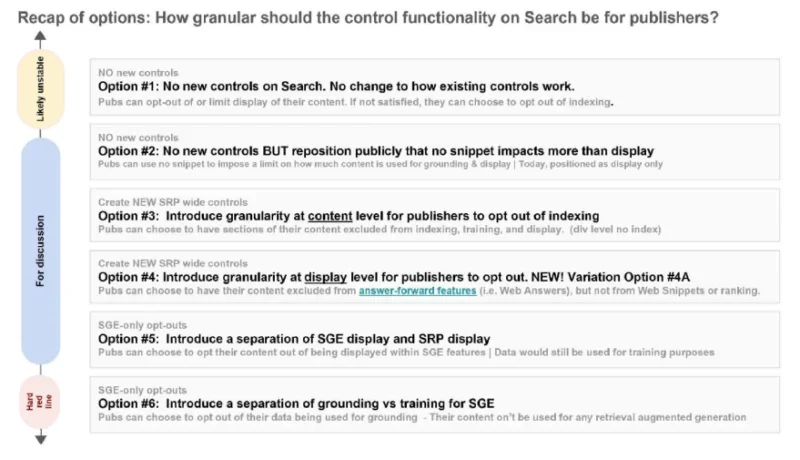
- Functionality and Monetization: These overviews are generated by Google’s sophisticated artificial intelligence, which processes and extracts content directly from various publishers’ websites. This raises fundamental questions about fair use and intellectual property. Furthermore, and critically, since May 2025, Google has begun to integrate advertisements directly within these AI Overviews (Times of India; Patently Apple). This monetization strategy, occurring directly on Google’s platform using content derived from others, is a core point of contention.
The Specific Allegations of Google Search AI Content Misuse
- Unauthorized Content Extraction and Repurposing: Publishers unequivocally assert that Google’s AI Overviews routinely extract, summarize, or directly repurpose their copyrighted content without obtaining explicit permission or providing adequate, visible attribution to the original source. This practice, they argue, constitutes a profound breach of intellectual property rights and amounts to an unauthorized commercial use of their journalistic and creative output. The AI is essentially leveraging their substantial investments in content creation for its own direct benefit (Pennebrief; Patently Apple).
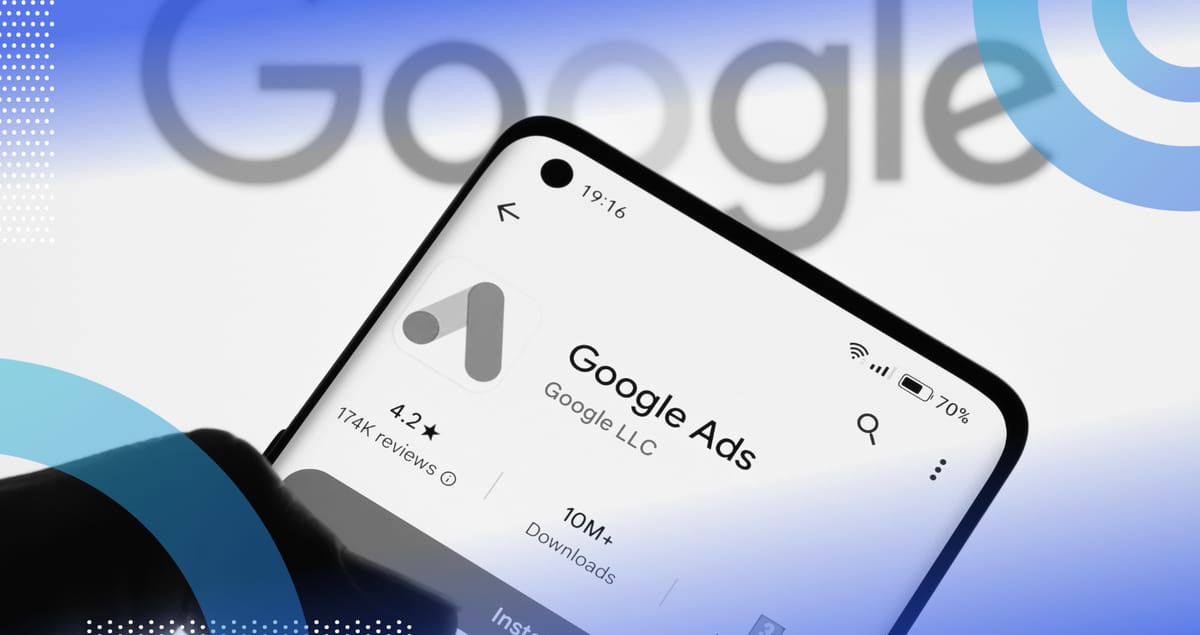
- Reduced Outbound Links and Traffic Diversion: The AI Overview feature, by its very design, offers significantly fewer outbound links directly to publisher sites within the search results display. This architectural choice directly reduces both the visibility of the original source and, more critically, substantially diminishes the potential organic traffic that would typically be driven to their websites. This diversion of traffic starves publishers of the very audience they rely upon for revenue and engagement (Patently Apple).
- Lack of Meaningful Opt-Out Option: A major grievance highlighted by the complaint is the stark reality that publishers currently lack any viable, meaningful means to opt out of having their content ingested and utilized by Google’s AI for Overviews. The only existing option presented by Google is to entirely disappear from *all* Google search results, which is commercially and existentially unfeasible for nearly all publishers. This “all or nothing” approach severely limits publisher autonomy and control over their intellectual property, forcing them into an untenable position (Patently Apple).
- Unfair Leveraging of Copyrighted Content: These practices are alleged to constitute an egregious and unfair leveraging of copyrighted or value-added content. Publishers argue vehemently that Google is unfairly benefiting from their substantial investments in creating quality content without providing just compensation, thereby placing publishers at a significant and unfair competitive disadvantage. This fundamentally disrupts the economic balance of the digital content ecosystem (Times of India; Patently Apple; Economist Times; Pennebrief).
3. The Tangible Impact of Google AI Overviews on News Sites and Publishers
The allegations leveled against Google are not abstract legal theories; they translate directly into severe, measurable consequences for digital publishers. The impact of Google AI Overviews on news sites is profoundly economic, editorial, and existential.
Financial Implications for Publishers
- Sharp Decline in Website Traffic and Click-Through Rates (CTR): Numerous publishers are reporting a marked and concerning decline in direct website traffic and overall click-through rates. This phenomenon is largely attributed to users increasingly receiving immediate, truncated answers directly on Google’s platform via AI Overviews, thus significantly reducing their incentive to click through to original news sources (Times of India; Economist Times). This isn’t just a minor dip; for many, it represents a substantial erosion of their fundamental audience base.
- Substantial Loss of Advertising Revenue: The significant reduction in website traffic directly translates into substantial lost revenue streams. This adverse impact is felt across various critical monetization methods, including:
- Display advertising: The ads shown directly on their websites, whose value is directly tied to page views.
- Affiliate marketing: Commissions earned from sales referred by their content, which requires clicks to external sites.
- Direct subscriptions: New sign-ups that are intrinsically linked to the volume of website visitors and reader engagement.
All of these income pillars are intrinsically linked to the volume of website visitors, making the traffic decline a direct threat to their financial viability (Economist Times; Patently Apple).
Editorial Implications
- Diminished Visibility for Original Reporting and Journalism: When AI summaries are given precedence and effectively supplant direct links to original publisher sites, the visibility and recognition of original reporting, investigative journalism, and in-depth analytical efforts are significantly diminished. This inherently undermines the perceived value and incentive for producing high-quality, unique, and labor-intensive content. Why invest heavily in groundbreaking journalism if its public face is an AI summary on Google’s platform?
- Devaluing In-Depth Content in Favor of Brevity: There is a serious risk that AI-generated summaries, by their very design, inherently prioritize conciseness and immediate, bite-sized answers over comprehensive, nuanced, and detailed information. This trend could lead to a systemic devaluing of the extensive efforts, considerable resources, and specialized expertise invested by journalists and original content creators in producing thoroughly researched, fact-checked, and in-depth articles. The shift risks a future where depth is sacrificed for immediate gratification, with profound implications for informed public discourse.
Existential Threat to Sustainability
The cumulative impact of Google AI Overviews on news sites represents nothing less than an existential threat to the fundamental business models of digital publishing. This threat is particularly acute for smaller, independent, or niche content outlets that are profoundly reliant on organic search traffic for their continued survival, for attracting a loyal readership, and for securing essential advertising revenue. Without a fair and equitable means of reaching their audience and monetizing their work, many of these vital voices in the digital ecosystem face an uncertain, and potentially short, future (Times of India; Patently Apple; Economist Times).
4. The Legal Framework: EU Digital Regulations Google AI Must Contend With
This complaint is not an isolated legal skirmish; it is strategically positioned within Europe’s robust, proactive, and increasingly comprehensive regulatory landscape. This framework is specifically designed to address complex issues of competition, market fairness, and consumer protection within the rapidly evolving digital sphere, underscoring the EU’s unwavering commitment to holding dominant tech players accountable. The EU digital regulations Google AI and other tech giants now face are among the world’s most stringent.
Relevant EU Digital Regulations Google AI Must Contend With
- The Digital Markets Act (DMA): This is a landmark regulation specifically aimed at preventing large digital “gatekeepers”—a designation that unequivocally applies to entities like Google—from imposing unfair conditions on businesses and end-users operating on their platforms. The DMA sets out a clear, prescriptive list of “dos and don’ts” to ensure fair and open digital markets. It explicitly targets behaviors that lead to market foreclosure or inhibit fair competition (Patently Apple).
- The Digital Services Act (DSA): A complementary, but equally vital, regulation, the DSA focuses broadly on online safety, transparency, and accountability for digital services. While the DMA primarily targets market power and competitive dynamics, the DSA addresses the broader responsibilities of platforms concerning content moderation, user protection, and the overall operating environment. Principles of fair operating conditions, transparency in algorithmic decision-making, and protection of journalistic content could very well be invoked here to strengthen the publishers’ case.
The “Antitrust” Angle: Abuse of Dominant Market Position
The fundamental reason why independent publishers are suing Google AI is rooted in antitrust law. They argue, convincingly, that Google is abusing its overwhelmingly dominant market position in the search engine sector, which effectively functions as an essential gateway to information for billions globally. Antitrust law, often referred to as competition law, aims precisely to prevent practices that distort, stifle, or eliminate fair competition within a market, thereby harming consumers and smaller businesses.

Specific allegations under EU antitrust law include:
- Alleged “gatekeeping” practices that hinder competing businesses (i.e., the publishers) from effectively reaching their audience, as Google effectively controls the primary conduit of discovery.
- Engaging in unfair competition where Google leverages its immense market power to gain an undue advantage by using publishers’ copyrighted content without providing fair compensation, thereby undermining their economic models (Times of India; Patently Apple). These issues are central to decades of EU antitrust jurisprudence, which has consistently prioritized fostering a level playing field.
Precedents and the EU’s Decisive Stance
The EU has a well-established and robust history of imposing substantial fines and mandating significant remedies on Google for various anti-competitive behaviors. This history is crucial context for the present complaint. Past examples include:
- Multi-billion euro fines related to Android’s market dominance, where Google was found to have leveraged its operating system to stifle competition for search and browser apps.
- Fines concerning search shopping bias, where Google was accused of unlawfully favoring its own comparison shopping service in search results.
- Penalties related to advertising practices, ensuring fair competition in the digital advertising ecosystem.
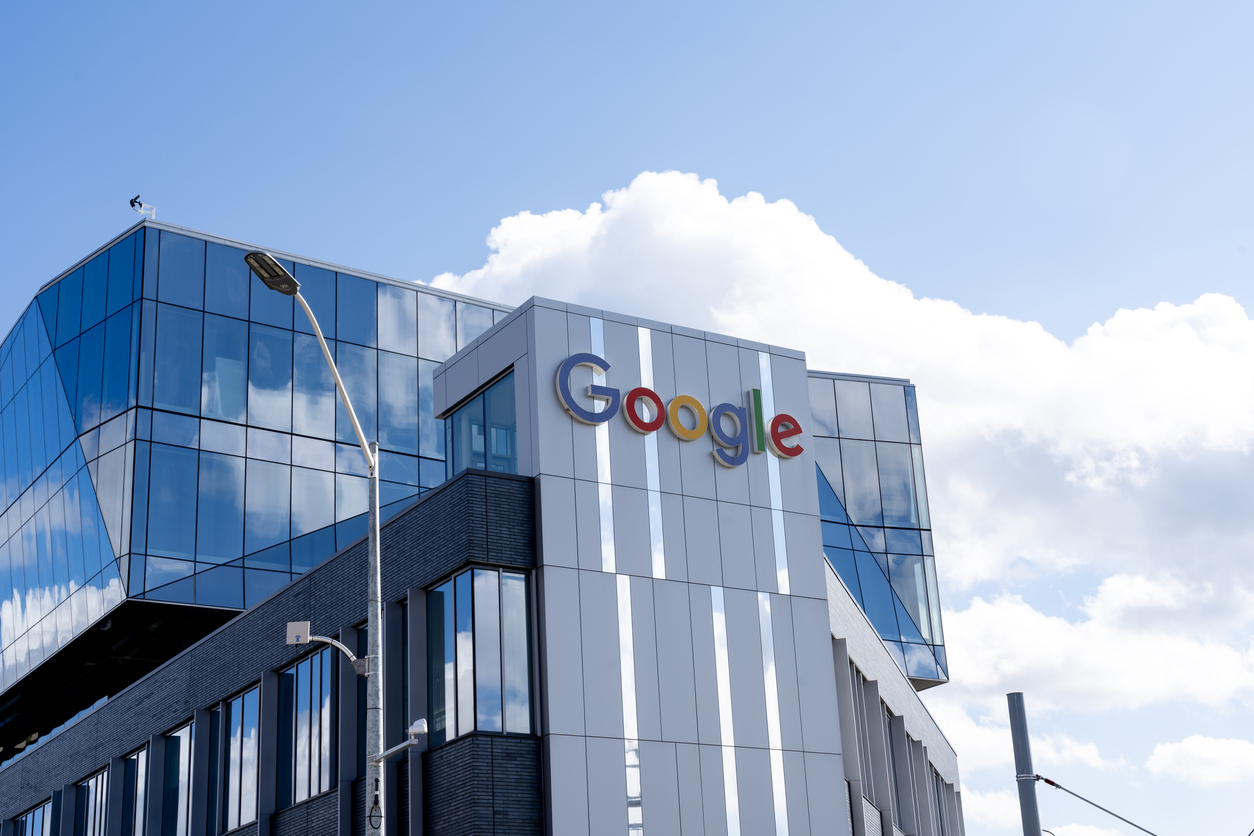
These precedents unequivocally underscore the European Commission’s demonstrated willingness and robust capacity to act decisively against perceived market abuses by powerful tech companies (Times of India; Patently Apple). This historical track record indicates the profound seriousness and potential ramifications of this particular Google AI Overviews EU antitrust complaint, suggesting that the EU is prepared to take strong action if violations are proven.
5. The Broader Implications: What This Complaint Means for the Future of Search and Content
Beyond the immediate legal battle, the Google AI Overviews EU antitrust complaint carries profound implications that will shape the trajectory of search engine development, the sustainability of online content creation, and the very structure of the digital economy for years to come.
Potential Outcomes for the Google AI Overviews EU Antitrust Complaint

- Imposition of Fines and Penalties: Should the European Commission find Google in violation of its antitrust laws, it could impose substantial financial penalties. Given the EU’s history, these fines could easily run into billions of euros, reflecting the perceived severity and market impact of the alleged abuses. These penalties serve not just as punishment but also as a strong deterrent for future anti-competitive behavior.
- Mandatory Changes to AI Overviews Functionality: More critically and perhaps more impactful for the digital ecosystem, the Commission could mandate specific, structural changes to how AI Overviews function. This could include:
- Stricter attribution requirements: Forcing Google to provide more prominent, clear, and direct links to the original source material, ensuring users know where the information truly originates.
- Improved opt-out mechanisms: Implementing practical options that allow publishers to prevent their content from being used in AI Overviews without simultaneously requiring them to be removed entirely from traditional search results. This would grant publishers essential control over their intellectual property.
- Potential revenue-sharing models: Potentially compelling Google to share advertising revenue generated directly from AI Overviews with the content creators whose work is summarized and utilized. This would acknowledge the value publishers bring and ensure a more equitable distribution of the economic benefits (Economist Times; Patently Apple; Times of India).
- Repercussions for Google’s Global AI Strategy: A definitive ruling against Google in the EU could establish a significant and far-reaching precedent. This outcome could subsequently influence how Google develops and deploys its AI search features in other global jurisdictions, particularly in regions with strong or emerging digital regulations that are looking to safeguard their own domestic content industries. The EU often acts as a trailblazer in tech regulation, setting global standards.
Profound Implications for Content Creators and the Digital Ecosystem
- The Urgent Need for a More Equitable Digital Ecosystem: This case profoundly underscores the urgent and undeniable need for a more equitable digital ecosystem. It highlights the fundamental principle that those who invest substantial resources, time, and intellectual capital in producing original, valuable content should be fairly compensated for its utilization and, critically, retain meaningful control and autonomy over their intellectual property. The current model, publishers argue, heavily favors platforms at the expense of creators.
- The Evolving Debate Around Google Search AI Content Misuse: The escalating debate around Google search AI content misuse reflects broader societal and legal challenges. It speaks to the critical and complex task of finding the right balance between fostering rapid technological innovation (such as the integration of advanced AI in search capabilities) and simultaneously ensuring the long-term sustainability, fair compensation, and intellectual property rights of original content creators. This balance is paramount for a healthy, diverse, and vibrant internet.
6. Conclusion: A Defining Moment for AI, Search, and Digital Publishing
In summation, the Google AI Overviews EU antitrust complaint represents a pivotal and potentially defining moment for both the evolution of the search industry and the long-term sustainability of news publishing in the digital age. Its outcome will reverberate globally.
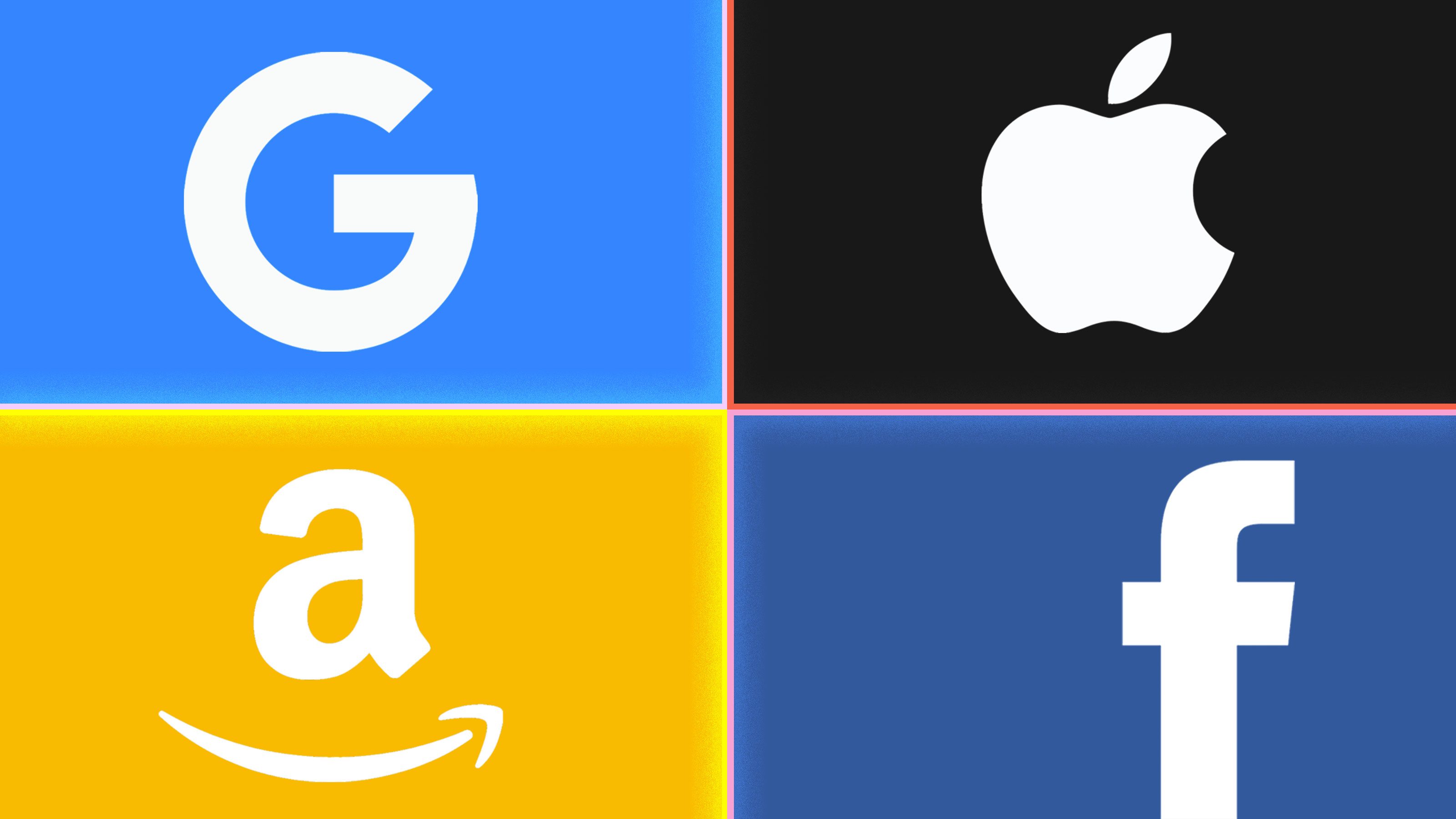
We must reiterate the serious and legitimate concerns voiced by the powerful coalition of independent publishers who are suing Google AI. Their grievances underscore the profound impact of Google AI Overviews on news sites, specifically in terms of diminishing traffic, eroding revenue streams, and threatening the very editorial independence that underpins quality journalism.
This complaint highlights the indispensable necessity of robust EU digital regulations Google AI and other dominant tech giants must rigorously adhere to. Such regulations are absolutely crucial to ensuring fairness, fostering transparency, and securing long-term sustainability within the dynamic digital content landscape (Patently Apple; Times of India; Economist Times). This particular case has the profound potential to set far-reaching precedents for how powerful tech companies will engage with—and critically, compensate—the creators whose valuable work forms the foundational bedrock of the modern internet.
Frequently Asked Questions
-
- Q: What is the core accusation in the Google AI Overviews EU antitrust complaint?
A: The core accusation is that Google is abusing its dominant market position by using its AI Overviews feature to unfairly leverage copyrighted content from independent publishers without adequate permission or compensation. This allegedly diverts traffic and advertising revenue away from the original content creators, threatening their financial viability.
- Q: What is the core accusation in the Google AI Overviews EU antitrust complaint?
-
- Q: Who are the “independent publishers” suing Google AI?
A: The complaint was filed by the Independent Publishers Alliance, supported by organizations like the Movement for an Open Web and Foxglove. This coalition represents a wide range of smaller, independent news sites and digital content creators who are heavily reliant on organic search traffic for their business models.
- Q: Who are the “independent publishers” suing Google AI?
-
- Q: How do Google AI Overviews impact news sites specifically?
A: AI Overviews deliver summarized answers directly in search results, reducing the need for users to click through to news sites. This leads to a significant decline in website traffic, resulting in substantial losses of advertising revenue and subscriptions. It also diminishes the visibility and value of original journalism, posing an existential threat to many publishers.
- Q: How do Google AI Overviews impact news sites specifically?
-
- Q: What EU digital regulations are relevant to this complaint?
A: The complaint is strongly contextualized by the EU’s Digital Markets Act (DMA), which aims to ensure fair competition with “gatekeepers” like Google, and the Digital Services Act (DSA), which addresses online safety and platform accountability. The EU’s robust antitrust framework is also central, given the allegations of abuse of dominant market position.
- Q: What EU digital regulations are relevant to this complaint?
- Q: What could be the potential outcomes if Google is found in violation?
A: Potential outcomes include significant financial penalties for Google, mandated changes to AI Overviews (such as stricter attribution, improved opt-out mechanisms, or even revenue-sharing models), and a global precedent that could influence how Google and other tech companies deploy AI search features in other jurisdictions.


